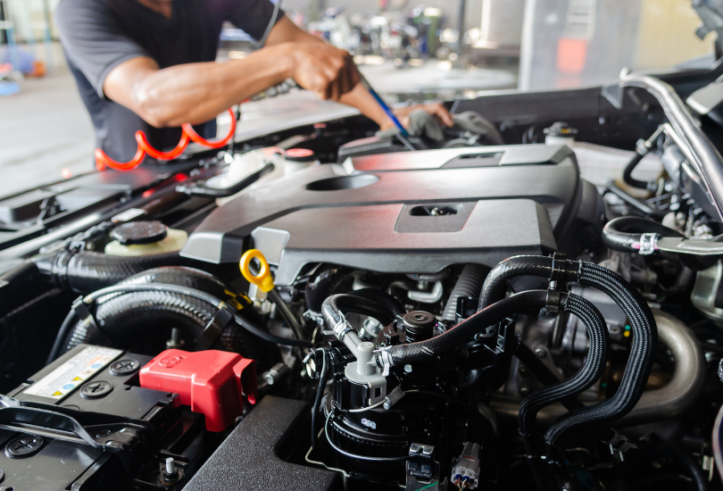An engine tune-up is a crucial aspect of vehicle maintenance that helps optimize performance, fuel efficiency, and overall engine health. In this article, we will explore the basics of engine tune-ups and highlight the key components involved. Understanding these essentials will empower you to make informed decisions about your vehicle’s maintenance needs.
Spark Plug Replacement:
Spark plugs play a vital role in the ignition process. Over time, they can wear out, leading to poor fuel combustion, reduced power, and decreased fuel efficiency. During an engine tune-up, worn-out spark plugs are replaced, ensuring efficient combustion and improved engine performance.
Air Filter Checks:
The air filter prevents dust, debris, and contaminants from entering the engine. A clogged or dirty air filter can restrict airflow, leading to decreased performance and fuel efficiency. Regular air filter checks and replacements as needed during a tune-up help maintain optimal engine performance and prolong its life.
Fuel System Inspections:
The fuel system, including the fuel injectors and fuel filter, plays a crucial role in delivering the right amount of fuel for combustion. During an engine tune-up, the fuel system is inspected for any issues such as clogged injectors or a dirty fuel filter. Cleaning or replacing these components ensures proper fuel delivery and efficient engine operation.
Ignition System Evaluation:
The ignition system, which includes components like the ignition coils and distributor cap, is responsible for generating and delivering the electrical spark needed for combustion. An engine tune-up involves evaluating the ignition system’s condition and replacing any faulty components, ensuring reliable spark generation and consistent engine performance.
Throttle Body and Idle Speed Adjustment:
The throttle body controls the amount of air that enters the engine, while the idle speed determines the engine’s idle RPM (revolutions per minute). During a tune-up, the throttle body is inspected and cleaned, and the idle speed is adjusted if necessary. This helps maintain smooth engine operation and prevents stalling or rough idling.
Conclusion: An engine tune-up is a vital maintenance procedure that optimizes your vehicle’s performance, fuel efficiency, and overall engine health. By addressing key components like spark plugs, air filters, fuel systems, ignition systems, and throttle bodies, you can ensure your engine operates at its best. Consult with a professional mechanic to schedule regular tune-ups based on your vehicle’s manufacturer recommendations or when you notice signs of decreased performance or efficiency.



